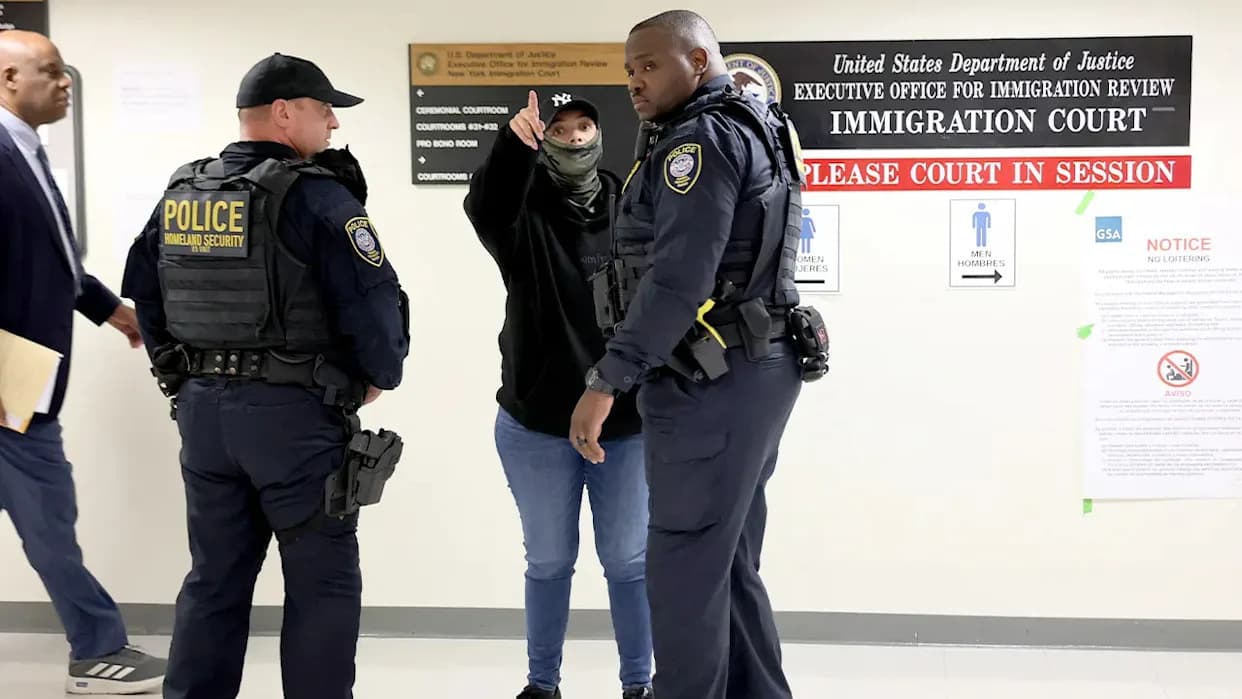The 7th U.S. Circuit Court of Appeals temporarily stayed a Nov. 6 injunction that limited when immigration agents could use tear gas, barred arrests of journalists and required body cameras. The Justice Department won the emergency pause on Nov. 10, saying the district court overstepped in directing federal law enforcement. Judge Sara Ellis issued the original order after finding protesters, reporters and clergy had been targeted; the appeals court will now review her legal reasoning.
Appeals Court Pauses Restrictions on Immigration Agents’ Tactics at Chicago Protests

CHICAGO — The 7th U.S. Circuit Court of Appeals on Wednesday temporarily stayed a federal judge’s order that limited when immigration agents could deploy tear gas and other anti‑riot measures during protests in the Chicago area.
The appeals court granted the Justice Department’s emergency request to pause the injunction, which had required agents to issue warnings before using tear gas, prohibited arrests or dispersal of journalists, and mandated that agents wear body cameras and display clear identification. The government sought the stay on Nov. 10, arguing the district court’s order improperly micromanaged federal law enforcement operations.
U.S. District Judge Sara Ellis issued the original order on Nov. 6 after ruling for a coalition of protesters, reporters and clergy who said they were being singled out for violent treatment that violated their constitutional rights to free speech, assembly and religious exercise. After hearing testimony from both demonstrators and federal agents, Judge Ellis concluded the government’s portrayal of widespread, uncontrolled violence was not credible and cited instances in which agents’ accounts conflicted with witness testimony.
Since early September, the Trump administration has focused expanded immigration enforcement and deportation operations in Chicago under an initiative referred to as “Operation Midway Blitz.” Federal officers have at times used tear gas in residential neighborhoods and restrained protesters while attempting to detain people suspected of immigration violations.
President Trump also ordered National Guard troops to Chicago in September, but a federal court blocked that deployment on Oct. 16; that ruling is currently under review by the U.S. Supreme Court.
The appeals court’s stay will remain in effect while the panel conducts a fuller review of Judge Ellis’s legal reasoning and the scope of her injunction. The case highlights continuing tensions between federal enforcement authority and constitutional protections for protesters, journalists and clergy during high‑profile immigration actions.
By Diana Novak Jones
Help us improve.


































